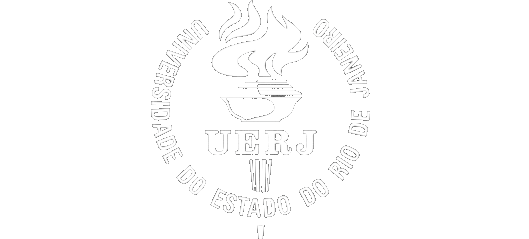Dept. of Mechanical Eng. >> About
Undergraduate Education in Mechanical Engineering
The Department of Mechanical Engineering of the Faculty of Engineering of the Rio de Janeiro State University - UERJ is responsible for graduating students of mechanical engineering. The course aims to form a comprehensive engineer with a strong scientific background to face challenges in any field of Mechanical Engineering.
The Mechanical Engineering course complies with the credit scheme also spread over two academic semesters.
Mechanical Engineering is a branch of engineering focused on the design, analysis, manufacturing, and maintenance of mechanical and thermal systems. It encompasses a wide range of applications, including industrial machinery, automotive vehicles, energy systems, robotics, and emerging technologies such as 3D printing. Additionally, mechanical engineers play a crucial role in developing thermal systems, such as refrigeration and heating systems, which are essential for environmental control in various industrial and commercial contexts. This discipline utilizes principles of physics, mathematics, and thermal sciences to create solutions that enhance the functionality, efficiency, and innovation of mechanical and thermal devices. Studying mechanical engineering allows for significant contributions to various industrial and research sectors, developing robust technical skills and a comprehensive understanding of mechanical and thermal dynamics.
The Mechanical Engineer plays a fundamental role in various industrial sectors, involving not only the design and improvement of machines, equipment, vehicles, and thermal systems but also research and development (R&D) of new technologies and solutions. Using advanced concepts of dynamics, structural analysis, materials, thermodynamics, heat transfer, and fluid mechanics, these professionals drive innovations that address complex technical challenges. In addition to contributing to design and conception, the mechanical engineer is involved in managing manufacturing processes, implementing quality control systems, and maintaining operations to ensure efficiency and safety. This versatility enables mechanical engineers to collaborate on interdisciplinary and innovative projects, adapting to rapid technological changes and new market demands.
Is mechanical engineering the right course for you?
Engineering can be a really versatile and fun career, but getting there takes time and studying can be very demanding. You need to have a strong desire to be an engineer to make the most of your journey. But how do you know if being an engineer really is right for you? And how do you know if Mechanical Engineering is the right course?
First, ask yourself these questions:
- Do you like math and science, especially physics?
- Do you like solving complex problems?
- Are you creative and like to make things up?
- Do you like working with your hands and tools?
- Do you like to take things apart to see how they work?
- Do you like to make things better by making them more efficient?
Working as a Mechanical Engineer involves being part of a team, with engineers from other fields such as electrical or chemical engineers. Therefore, it is important to be good at teamwork.
You will need to have good communication skills (written and spoken) to ensure that you can convey your message clearly.
If you fit most of the above, then it is quite possible that Mechanical Engineering might be the right course for your profile.
Main objectives
To provide the future professional with training that will enable it to absorb and develop new technologies, stimulating it to act critically and creatively in identifying and solving problems, considering its political, economic, social, environmental and cultural aspects, noting the legislation, safety and ethics.
Specific Objectives
Train engineers with the capacity to carry out the activities inherent in their training and able to develop and expand:
- Scientific knowledge based on Mathematics, Physics, Chemistry and Informatics content;
- The basic technical training of the Mechanical Engineer;
- Personal skills, such as: logical reasoning, spatial vision, creativity, synthesis, analytical reasoning, etc.
- Technical skills, such as the application of mathematical, scientific, technological and instrumental knowledge to engineering, project development and the conduct of experiments and interpretation of results, as well as in the identification, formulation and resolution of engineering problems;
- The practical training held in UERJ laboratories and in supervised work by professors of the Engineering Department;
- Your managerial potentialities related to administration and economy.
The engineer
The field of action of the mechanical engineer is vast, exercising activities in the areas of supervision, coordination and technical guidance; study, planning, design and specification; technical-economical feasibility study; assistance, advice and consultancy; standardization, measurement and quality control; operation and maintenance of equipment and facilities; specialized technical production. All These activities refer to mechanical processes, machines in general, industrial and mechanical, mechanical and electro-mechanical equipment, motor vehicles, systems for the production and use of heat, refrigeration and air-conditioning systems, related services.
The course
The curriculum grade totals 4,440 hours, distributed in 66 courses (a total of 241 credits), among which laboratory practices are included in complementation to the theoretical basis. Also included are Supervised Internship and Undergraduate Project (end-of-course work) as an activity of synthesis and integration of knowledge scientific, technological and instrumental. Also, as complementary academic activities optional include Internal Internship, Monitoring and Scientific Initiation; Courses, Events, Occasional lectures and technical visits as activities aimed at providing a better perception of what Engineering is, how the sector is found in Brazil and what are the areas of activity and activities developed by mechanical engineers.
The course is scheduled to last 10 semesters (5 years) as shown in course's flowchart. The first cycle (4 first semesters) is formed by common to all engineering undergraduates. During this period, the student has the opportunity to attend the courses together with the students of other engineering and this allows for the exchange of experiences and greater integration between the courses. In the professional cycle (5th to 10th period) the student studies the specific fields of knowledge of mechanical engineering.


